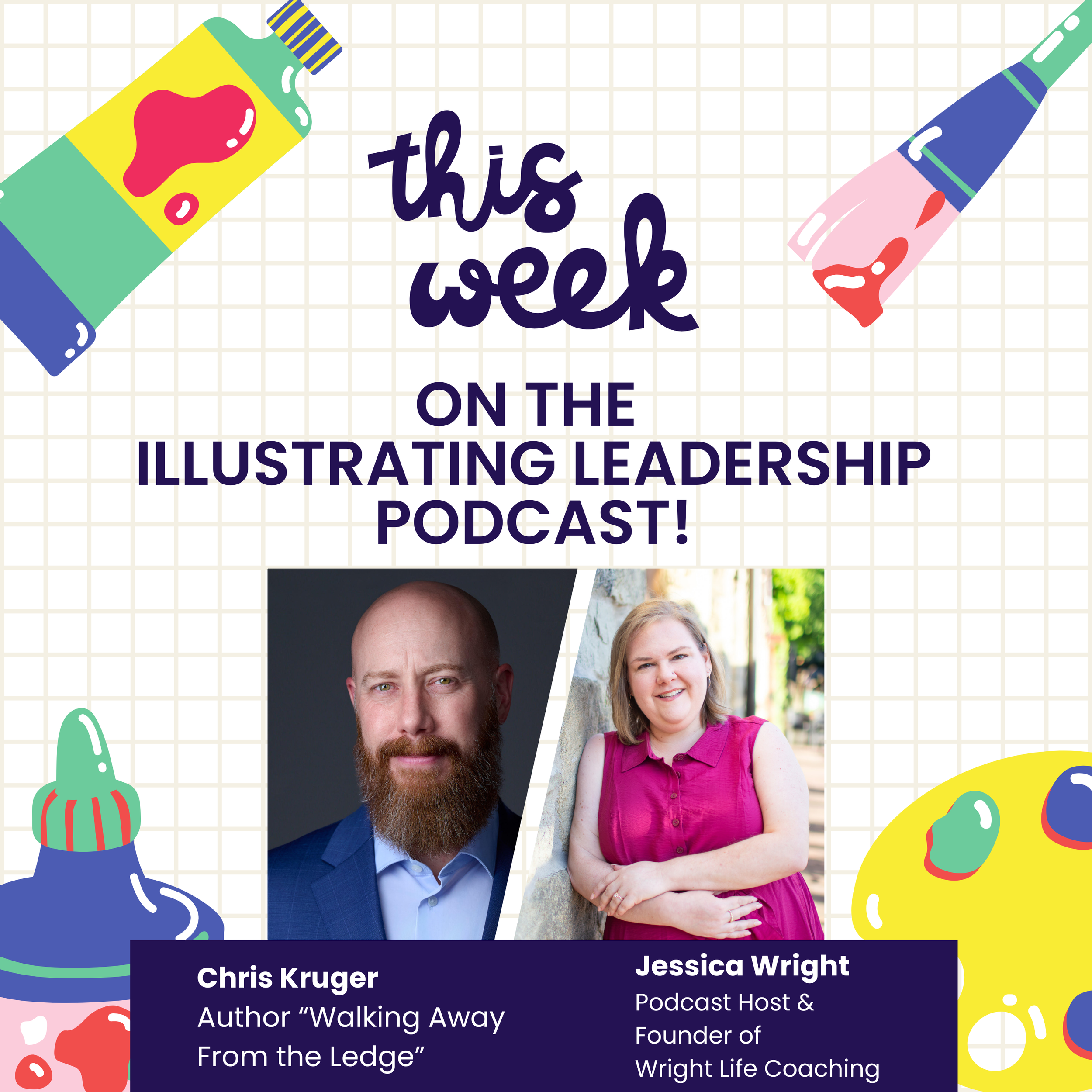Illustrating Leadership Lesson: Lead Yourself First
Chris joined the Army in 2000, drawn to the challenge of infantry life and the sense of purpose it brought. Over his 22-year career, he experienced the full spectrum of military leadership — from front-line combat to aviation operations.
After retiring in 2022, Chris began writing about his experiences, which led to his memoir chronicling not just the missions and milestones, but the mental health journey that came with them. What started as a reflection on service evolved into a story of healing, leadership, and hope.
“I want people to feel encouraged to share their stories,” Chris said. “Not to relive them constantly, but to process, move through them, and help others do the same.”
Leadership That Puts People First
When asked about a leader who deeply influenced him, Chris shared the story of a company commander who modeled true servant leadership during one of his 15-month deployments to Iraq.
This leader prioritized the morale and well-being of his soldiers over appearances or ego. “He took care of us first and worried about how he looked last,” Chris recalled. Whether it was ensuring soldiers had time to call home or allowing them to purchase their own comfort gear for long missions, he set a tone of trust and respect that shaped how Chris would lead for the rest of his career.
“When you take care of your people,” he said, “the mission takes care of itself.”
The Role of Empathy in Military Leadership
Empathy might not be the first word most people associate with the military, but Chris made it clear that compassionate leadership has a critical place even in high-stakes environments.
“You can’t be heavy-handed all the time and expect the same results,” he said. “You’ll get compliance, but not commitment.”
He described how leaders who build trust through empathy and respect create teams that respond more quickly and effectively under pressure. When soldiers feel seen, valued, and supported, they don’t just follow orders — they go above and beyond because they trust the person giving them.
One story illustrated this perfectly: when Chris’s wife needed help after surgery, his commanding officer heard about it through the grapevine and immediately sent him home to take care of her. That act of empathy inspired fierce loyalty. “I would’ve broken my back to get aircraft up for that guy,” Chris said. “Because he showed he cared.”
Learning to Lead Yourself
After retiring, Chris found that many of the lessons he learned in leadership still applied — only now, the person he needed to lead most was himself.
“Leading myself has been the new mission,” he shared. “Being around my family more, learning patience, and making sure I’m not carrying over those old habits from military life.”
He’s now focused on personal development, self-awareness, and healing — all of which he sees as essential to becoming a better leader, parent, and partner.
“You can’t lead others if you can’t lead yourself,” he said. “It starts with humility and the willingness to say, ‘I’m not always right — what can I change for the better?’”
From Battlefield to Book
Chris’s memoir isn’t just a recounting of missions — it’s an honest exploration of leadership, mental health, and what it means to grow beyond the uniform.
Through writing, he hopes to bridge the gap between military and civilian understanding, reduce stigma around mental health, and encourage others to share their own stories of transformation.
As he put it, “It’s not just a memoir — it’s an invitation to lead yourself, heal, and help others do the same.”
Connect with Chris
You can connect with Chris on Facebook and X (formerly Twitter), or follow his work and updates on LinkedIn. His memoir "Walking Away From the Ledge" is available now, and he continues to share his insights on leadership, service, and self-growth through his writing and upcoming blog.
Your host, Jessica Wright, is a Life & Career Development Coach for Leaders and the Founder of Wright Life Coaching, LLC. You can connect with and follow her on LinkedIn.
